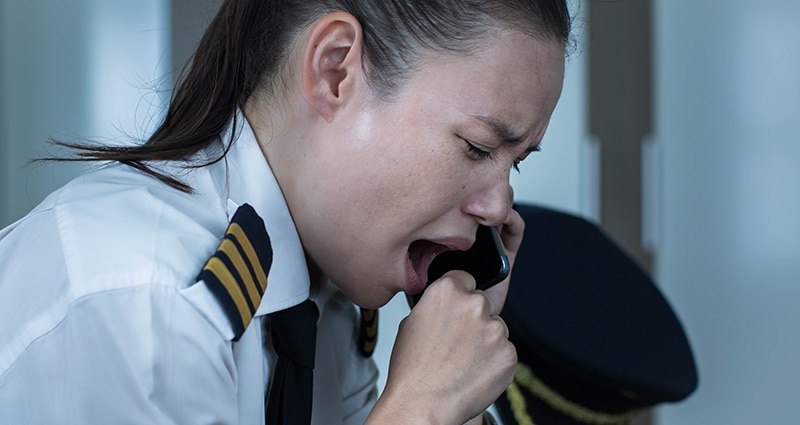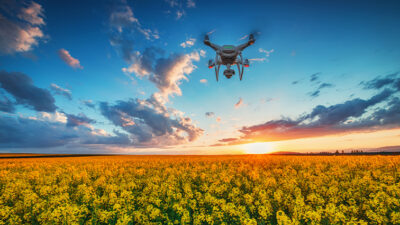What If I Can’t Sleep 8 Hours?

Adjusting to the physiological and psychological changes from traveling across time zones is essential for flight crews. However, another factor is added to the equation in most U.S. destinations every six months: the shifts into and out of daylight saving time. A bill to eliminate the twice-yearly practice of changing our clocks by an hour is making its way through Congress. In the meantime, it’s worth considering why adapting to daylight saving time is so hard on many people.
In a word: sleep. It’s the one activity that all of us perform more than any other, and yet it’s also the one that most often gets put on the back burner.
When you think about it, the blissful practice of “sleeping in” lays bare the reality that there is just not enough sleep occurring in our modern world. You don’t ever hear of anyone “catching up” on nutrition. Even exercise is prioritized over sleep—as evidenced by 4 a.m. spin classes and 24-hour workout gyms.
The Cost of Cutting Back on Sleep
Sleep is precious. Ample scientific evidence exists that getting enough sleep sharpens the brain, improves mood, helps regulate blood sugar, controls weight gain and boosts athletic performance.
Earlier this year, the American Heart Association added sleep to its cardiovascular health checklist, asserting that sleep duration is “an essential component for ideal heart and brain health.” And just last week, the Journal of the American Heart Association published results from a sleep study of 1,920 people conducted by Columbia University that found participants with short sleep duration had higher chances of having poor sleep efficiency (less than 85% of the time in bed asleep), irregular sleep patterns and excessive daytime sleepiness. They also had higher prevalence of obesity, type 2 diabetes and high blood pressure.
You may be shaking your head while reading this, thinking: “Great, but I’m in aviation.” Your schedule may be highly irregular, with a high degree of what we call shift start time variability. Or you may frequently fly overseas and face the ordeal of trying to sleep when your body is back in your home time zone—or worse, trying to remain alert during your biological night.
Sleep in Aviation
As an aviation professional, making sleep a priority goes beyond promoting your personal health. It is a key ingredient in your ability to perform the safety-sensitive job of flying aircraft reliably and safely.
When we work with flight departments and charter operators to implement a fatigue risk management system, we always start with formulating a set of clear policies that recognize sleep as a priority, endorsed by the accountable executive and supported with training about sleep delivered to flight crew members.
Don’t worry if your schedule doesn’t consistently provide you with the opportunity to obtain a full eight hours of sleep per night. In his PhD research study of astronauts’ sleep, Daniel Mollicone, Pulsar’s CEO and Chief Scientist, found that what really matters is total daily sleep. The cognitive performance of individuals following a split sleep schedule is in line with that of individuals whose sleep is consolidated in a single nocturnal period—provided that the majority of the split sleep occurs during the biological night.
The bottom line is that any sleep is good sleep, and you should make sleep a core part of your organization’s commitment to safety. Pulsar Informatics specializes in delivering technologies and formulating best practices in fatigue risk management. Contact us to request a gap analysis of your existing policies and procedures to learn how we can help.

Pulsar Informatics is an IS-BAO I3SA certified company specializing in systems that help organizations reduce fatigue-related risk and achieve peak performance. Fleet Insight enables safety managers and schedulers to proactively evaluate fatigue across their entire operation’s schedule and formulate mitigation strategies. Fatigue Meter Pro Planner is used by pilots, flight attendants, and maintenance personnel to evaluate their individual flight and duty schedule.
http://www.pulsarinformatics.com
© 2025 Pulsar Informatics, Inc.. All Rights Reserved.
Next ArticleRelated Posts

Part 108: The Next Step in BVLOS Integration and Drone Innovation
As the drone industry awaits the Federal Aviation Administration’s (FAA) forthcoming Part 108 regulations, the landscape of Beyond Visual Line of Sight (BVLOS) operations stands on the brink of transformation. These anticipated rules aim to standardize BVLOS flights, enabling more complex and expansive drone missions across various sectors.

Giving the Hazard Log the Attention It Deserves
Safety risk profile. Hazard log. Hazard risk register. Whatever you call it internally, one thing is clear: It is a fundamental requirement in your safety management system.

